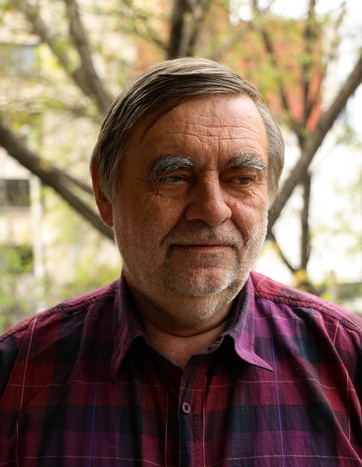About Institute / Doctors honoris causa / Stefan Sokolowski
Stefan Sokolowski

By the decision of the Academic Council of the ICMP of the National Acad. Sci. of Ukraine of November 26, 2019 the title of Doctor honoris causa was conferred on Stefan Sokołowski (Marie Curie-Skłodowska University, Lublin, Poland) for the development of the density functional theory for spatially restricted systems, pioneering studies on granular materials, adsorption, phase transitions, various mixing/demixing phenomena in fluids, simulations of polymers and hairy particles in bulk and in pores, as well as for your strong involvement in various forms of scientific collaboration with our Institute and your prolific contribution as an author and an active member of the Editorial board of the Condensed Matter Physics journal.
Stefan Sokołowski was born on January 18, 1951 in Bilgoraj, Poland. He began his academic training at Maria Curie-Skłodowska University (UMCS) in Lublin in 1968, receiving M.Sc. in chemistry in 1973. During his master studies, Stefan began to explore the adsorption phenomena of gases on solids in the well established scienti1c school of Prof. W. Rudzinski. Successful supervision of W. Rudzinski, and close collaboration with M. Jaroniec resulted in a series of original publications. Then he was recruited as an assistant in the Department of Theoretical Chemistry of UMCS to cover laboratory and classroom teaching. He learned various theoretical and experimental methods, as well as developed strong technical skills, and in 1974 he successfully passed the exams to enter the Ph.D. studies at the Institute of Physical Chemistry of Polish Academy of Science under supervision of Prof. Jan Stecki. In 1977, Sokołowski defended his Ph.D. thesis in chemistry, focused on the development and application of virial expansions to nonuniform model fluids. Stefan started to use a novel methodology like the second-order integral equations, Monte Carlo simulations, extension of the theory to non-spherical molecules and to multicomponent fluids.
S. Sokołowski moved to Penn state university to become a postdoctoral fellow of W.A. Steele (1983–1984), who at that time was well known for his contributions in the theory of adsorption. Stefan involved the density functional approaches, as well as molecular dynamics simulations, to explore a wider set of problems including phase behavior of fluids under the effect of external field. Accumulated amount of work related to the theory of adsorption and several applications made led him to complete his habilitation thesis (1987) devoted to the comparison of a description of thermodynamics of adsorption by using two- and three-dimensional models. Having the UMCS professorship received, he was awarded the highest academic grade in Poland — the title of all-state professor in Chemistry in 1997.
In 1988 Sokołowski got Alexander von Humbolt Fellowship at the Institut für Thermo- und Fluiddynamic of Ruhr Universität in Bohum, where he very successfully worked with Prof. Johan Fischer. They extended several versions of density functional theory and Born-Green-Yvon integral equations to the study of mixtures in pores and carried out molecular dynamics simulations of wetting transitions at the argon-carbon dioxide interface. To contribute into the freshly launched project on transport of the granular materials, Sokołowski moved to Forschungszentrum Jülich and worked there as a visiting professor during 1990–1991. One of the outcomes of the project was one of his highest cited works on molecular dynamics simulation of granular media. Stefan returned to Poland and worked at UMCS until early 1994. He also arrived at Mexico City being invited by Doug Henderson to spend a year as a visiting scientist at Universidad Autonoma Metropolitana.
Not pretending to provide an exhaustive list of all scientific directions of Stefan Sokołowski, let us remark that he is an reknown world expert in the theory of liquids, in particular, in problems of adsorption, chromatography, self-assembly, who is fluent in modern scientific methods and developed some of these by himself. His scientific activity resulted in 505 articles in the Web of Science database, 6500 citations, with the h-index of 35.
Stefan Sokołowski has strong and long-lasting contacts with the Institute for Condensed Matter Physics. He is the member of the Editorial Board of the Condensed Matter Physics journal, regular member of the Program Committees of the StatPhys series of the Conferences. He is a frequent author and reviewer of the Condensed Matter Physics. His collaborators include former ICMP employees O.Pizio, Y.Duda, A.Kovalenko, S.Hlushak and the scientists currently working in ICMP such as M.Holovko, Y.Kalyuzhnyi, A.Trokhymchuk, J.Ilnytskyi and T.Patsahan.